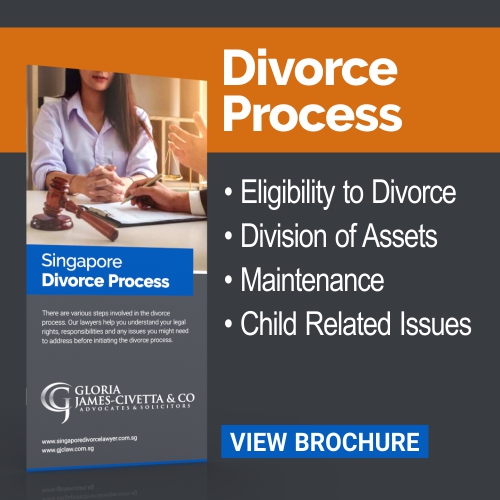A. General
B. Divorce Process in China
However, the possibility for a Chinese Civil Affairs Bureau or a Chinese Court to accept your divorce application depends on whether jurisdictional requirements are satisfied.
The relationship between parties has broken down in the following circumstances and should mediation be unsuccessful, divorce shall be granted in the following circumstances:-
- Bigamy or a spouse’s cohabitation with another individual;
- Committing domestic violence or abuse or abandonment of a family member;
- Refusal to mend one’s ways from bad habits of gambling and drug addictions despite repeatedly being educated/taught;
- Separation for 2 years because of emotional discord;
- Other circumstances that have led to the breakdown of feelings between a husband and a wife.
In addition, divorce should be granted when a party is declared missing and divorce proceedings are commenced by the other spouse.
For divorces by way of litigation, this will require going through the Court process for the Court to decide whether to grant the divorce.
C. Jurisdiction Requirements in China
Pre-requisites to commence divorce proceedings by way of agreement:
- Both parties must be agreeable to the divorce.
- Both parties must be agreeable on issues relating to custody of children and division of assets.
- Parties’ marriage must be registered in China.
- Parties’ must have full legal capacity pursuant to civil law.
Divorce by way of litigation
From the Civil Procedure Law, the Opinions of the Supreme People’s Court on the Application of the Civil Procedure Law of the People’s Republic of China to the Law on the Application of the Law on Civil Relations with Foreign Countries, there are no clear and explicit legal provisions governing expat divorces, the Chinese courts can exercise jurisdiction.
Clause 13 of the < Opinions of the Supreme People’s Court on the Application of the Civil Procedure Law of the People’s Republic of China> stipulates: –
“If the court of the country of residence of the Chinese residing abroad refuses to accept divorce proceedings on the grounds that the court of the place where the marriage is concluded must be under the jurisdiction of the court of the place where the marriage is concluded, the People’s Court of the place where the marriage is concluded or the last place where one party resides in the country shall file divorce proceedings with the People’s Court Jurisdiction.”
According to the provisions of this article, even if a Chinese citizen residing abroad (whose nationality remains the same) receives a certificate in China, the domestic court will only have jurisdiction if the court of the Chinese’s country of residence does not exercise jurisdiction on the grounds that it should be under the jurisdiction of the court of the place where the marriage is concluded.
In <Several Provisions of Embassies and Consulates stationed abroad in Dealing with Marriage Problems of Overseas Chinese>: –
“5. Both spouses are now foreign Chinese, or one of them is an overseas Chinese and the other is a foreign Chinese. If they request a divorce, they should apply to the relevant authorities of the country of residence for divorce formalities. The Chinese embassies and consulates abroad are not inclined to handle these cases. If parties were originally registered for marriage in China or in the Chinese consulates/ Chinese embassy abroad, but now for some reason, the relevant organs of parties’ country of residence are not inclined to handle, the Chinese embassy may accept the case with reference to the spirit of regulations on dealing with Chinese divorce cases.”
In summary, according to the spirit of Chinese legislations, foreign marriage cases mainly involves two factors: firstly, the nationality of both parties to the marriage; secondly, the place where the marriage is concluded. As long as one of the above two factors has a cross-border element, the Chinese mainland courts will not be inclined to accept it.
D. Child Issues in China
Therefore, for the latter, the Court will be guided by the interests of the children’s growth as a principle and will also take into account the circumstances of the case. There is no preference for custodial rights to be given to the mother.
The other party will only be responsible for the child’s expenses subject to parties’ agreement or the Court will decide to require the party granted custodial rights to pay for a portion of the children’s maintenance.
E. Division of Matrimonial Assets in China
- Property / House;
- Salary, Bonus, Allowance; housing allowance, corporate grant, income etc
- Any engagement in production, business benefits including working income, capital benefits such as stocks, bonds dividends, stock options etc
- Intellectual property, patents right benefits, only referring to financial gains due to intellectual property but not including IP personal name rights;
- Property acquired from Gifts or Inheritance.
- Protecting the rights and interests of the children and the wife;
- Protecting the non-fault party in the divorce – the non-fault party can request for compensation;
- The party who hides/ dissipates parties’ matrimonial assets or the party with the intention to forge a fake debt to acquire the other party’s assets will receive less or no matrimonial assets.
In a situation where property is divided between a husband and a wife, the party who conceals, transfers, sells, destroys the joint property of husband and wife or forges debts may be awarded a lesser or no portion in the division of assets.
F. Spousal Maintenance in China
For further detailed information on international divorce, please visit our dedicated web-page at www.expatdivorce.sg



